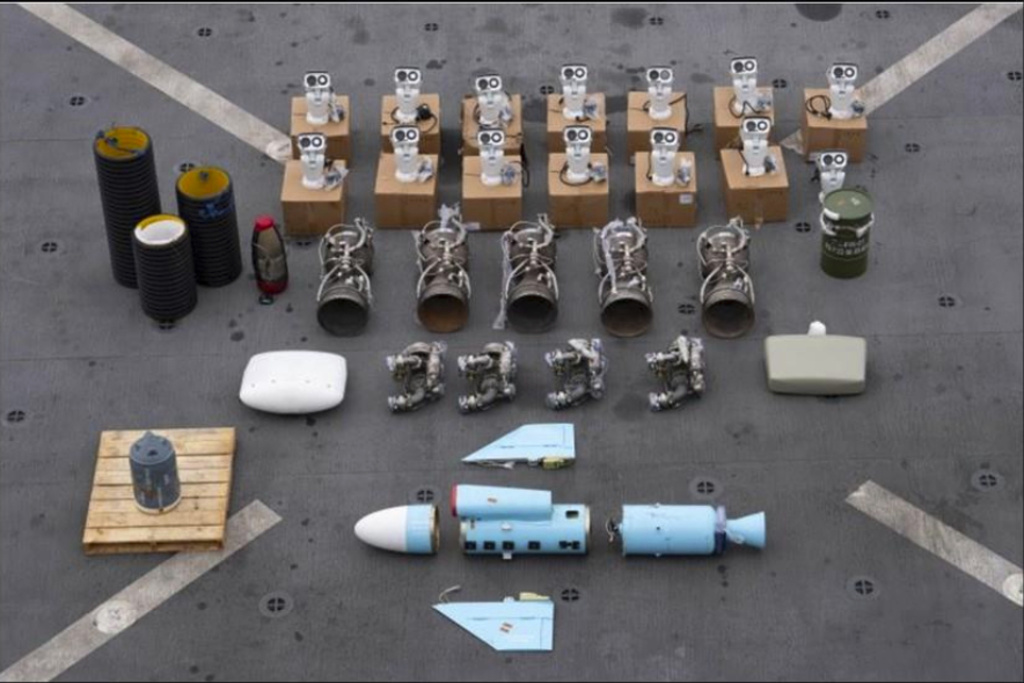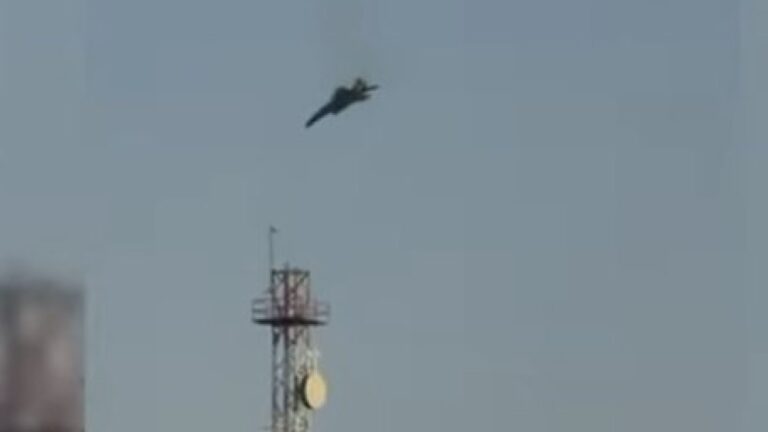The U.S. launched a new strike against the Yemen-based Houthis on Tuesday, hitting anti-ship missiles in the third assault on the Iranian-backed group in recent days, the U.S. military said.
The strike came as the Iranian-backed Houthis claimed responsibility for a missile attack against the Malta-flagged bulk carrier Zografia, also on Tuesday, in the Red Sea. The ship was hit, but no one was injured. The vessel had been heading north to the Suez Canal when it was attacked, the Greek Shipping and Island Policy Ministry said.
According to a U.S. Central Command statement, the overnight strike destroyed four Houthi ballistic missiles that were prepared to launch and presented an imminent threat to merchant and U.S. Navy ships in the region. The Houthi attack on the Zografia occurred later Tuesday and involved an anti-ship ballistic missile, the statement said, adding that the ship continued its Red Sea transit.
This latest exchange suggested there has been no let-up in Houthi attacks on shipping in the region, despite the massive U.S. and British assault on the group on Friday, bombing more than 60 targets in 28 locations using warship- and submarine-launched Tomahawk missiles and fighter jets.
White House national security adviser Jake Sullivan warned Tuesday that addressing the ongoing Houthi threat was an “all hands on deck” problem that the U.S. and allies must address to minimize impact on the global economy. And he said that the maritime attacks, coupled with ongoing threats from other Iran-backed militants in Iraq, Syria and Lebanon mean that allies must “be vigilant against the possibility that in fact, rather than heading towards de-escalation, we are on a path of escalation that we have to manage.”
The Houthis’ military spokesman, Brig. Gen. Yahya Saree, said in a pre-recorded statement that it fired after the ship’s crew refused to answer warning calls and that the vessel was heading for a port in Israel. According to the shipping tracking website Vessel Finder, Zografia was bound for Suez, Egypt.
The Zografia, managed by a Greek firm, had no cargo onboard and sustained only material damage, the ministry said. The crew included 20 Ukrainians, three Filipinos and one Georgian.
Amid the latest attacks, U.S. Navy SEALs seized Iranian-made missile parts and other weaponry from a ship bound for Yemen’s Houthi rebels in a raid last week that saw two of its commandos go missing, the U.S. military said Tuesday.
The raid marks the latest seizure by the U.S. Navy and its allies of weapon shipments bound for the rebels, who have launched a series of attacks now threatening global trade in the Red Sea and Gulf of Aden over Israel’s war on Hamas in the Gaza Strip. The seized missile components included types likely used in those attacks.
The attacks, U.S.-led retaliatory strikes and the raid all have raised tensions across the Middle East, which also saw Iran conduct ballistic missile strikes in Iraq and Syria.
The SEAL raid happened Thursday, with the commandos launching from the USS Lewis B. Puller backed by drones and helicopters, with the U.S. military’s Central Command saying it took place in the Arabian Sea.
The SEALs traveled in small special operations combat craft driven by naval special warfare crew to get to the boat. As they were boarding it in rough seas, around 8 p.m. local time, one SEAL got knocked off by high waves and a teammate went in after him. Both remain missing.
The SEALs found cruise and ballistic missile components, including propulsion and guidance devices, as well as warheads, Central Command said. It added that air defense parts also were found.
“Initial analysis indicates these same weapons have been employed by the Houthis to threaten and attack innocent mariners on international merchant ships transiting in the Red Sea,” Central Command said in a statement.
Images released by the U.S. military analyzed by the AP showed components resembling rocket motors and others previously seized. It also included what appeared to be an anti-ship cruise missile with a small turbojet engine, a type used by the Houthis and Iran.
Also included in the photos was a warhead similarly seen in the Iranian anti-ship missiles, which are based off an earlier Chinese design, said Fabian Hinz, a missile expert and research fellow at the International Institute for Strategic Studies.
“Looking at the size and the robustness of the thing, it looks a lot like an anti-ship warhead,” Hinz said.
Hinz also noted the warhead in the photo has a sticker reading “GHAD” on it. Iran has an anti-ship missile called the Ghadir.
The U.S. Navy ultimately sank the ship carrying the weapons after deeming it unsafe, Central Command said. The ship’s 14 crew have been detained.
The Houthis have not acknowledged the seizure, and Iran’s mission to the United Nations did not respond to a request for comment. However, Iran’s Supreme Leader Ayatollah Ali Khamenei praised the Houthis’ attacks.
A United Nations resolution bans arms transfers to Yemen’s Iranian-backed Houthi rebels. Tehran has long denied arming the rebels, despite physical evidence, numerous seizures and experts tying the weapons back to Iran.
Since November, the Houthis have repeatedly targeted ships in the Red Sea, saying they were avenging Israel’s offensive in Gaza against Hamas. But they have frequently targeted vessels with tenuous or no clear links to Israel, imperiling shipping in a key route for global trade.
U.S.-led airstrikes also targeted Houthi positions on Saturday. In response, the Houthis launched a missile at a U.S.-owned bulk carrier called the Gibraltar Eagle in the Gulf of Aden on Monday, further raising the risks in the conflict.
(AP)











